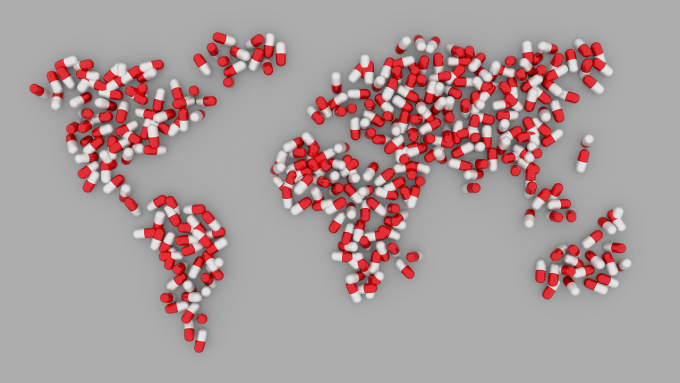BB Healthcare (BBH) reported annual results to 30 November 2020. The share price total return was 22.5%, the NAV total return was 24.6%, and the MSCI World Healthcare index returned 10.3%.
Geographically, BBH’s investments remain centred on the US market. BBH’s managers, Paul Major and Brett Darke, noted that healthcare very modestly underperformed the wider market over the financial year. True to its defensive growth attributes, the sector outperformed during the March 2020 sell-off and April 2020 recovery, but lost ground over the summer and underperformed in the October to November 2020 ‘re-opening’ trade, when investors avoided defensives for more cyclical exposure ahead of the first approvals of COVID-19 vaccines. The manager went on to say that at the same time, healthcare providers demonstrated their ability to cope with quite significant operational change over a short period of time, which is arguably a boon to those clamouring for reform but met with resistance from frontline staff. BBH thinks these factors may, in time, become additional medium-term positive growth drivers for the fund’s strategy and they continue to believe that healthcare will outperform the wider market over the longer-term.
‘Base case’ view from the manager
“We continue to adopt a ‘plan for the worst, hope for the best’ approach to capital allocation within healthcare. Despite the pervasive re-opening narrative versus our more cautious stance and significant holding of cash. Thus far in fiscal 2021, the Company has delivered a total return of +11.7%, some 910bp more than the comparator MSCI World Healthcare Index (data as of 15 February 2021).
As things stand today, we are more concerned than relaxed. As noted above, the logistical/execution risks around a return to normal are not insignificant. It serves us all well to remember that science is the embracing of uncertainty: there are no absolute truths, only hypotheses that serve as received wisdom in respect of the available data unless or until a better hypothesis comes along or new data upends things. The dispassionate questioning of everything is the most important tenet of scientific progress.
Applying this to the COVID-19 pandemic, we can be certain there are several things that we do not know with any confidence: how quickly vaccinations will be rolled out on a globally relevant basis, how long protection will last, how quickly the virus might mutate to escape current vaccines or become more or less serious in terms of symptomatic disease. Nor do we know how low case numbers, morbidity or mortality need to fall in any given region for consumers to feel safe enough to behave as they did before, or how long such a drop needs to last to induce people to re-engage. If science is the embracing of uncertainty, then active fund management is the embodiment of educated guesswork.
Why are we concerned? The mantra of “don’t worry about H1 21, it will all come good in H2” is rampant and seductive, but markets have a habit of looking through bad news, right up until the point that they don’t. These singular changes in mood are notoriously difficult to pin down with any confidence and usually arise when several small factors coalesce. The backdrop we observe is one where equity valuations are high in relative and absolute terms for many sub-sectors and consensus numbers imply some sort of a ‘catch-up’ in 2021 that is unprecedented in nature. Looking at some forecasts and comparing 2021 projections to 2019 actuals, it is almost as if this whole pandemic never happened. That does not feel right to us.
On the positive side, the sector’s classical defensive characteristics remain intact. COVID-19 may continue to transiently suppress procedure volumes and patient visits to some extent, but overall demand levels do not vary in the same way as discretionary or cyclical sectors, so we still see solid medium and long-term absolute returns from our investments irrespective of the wider economic outlook. In the following pages, we summarise our initial thoughts on the outlook at a sub-sector level, in order to provide shareholders with some additional insights into our current thinking.
The artificer may argue that healthcare valuations on a relative basis have never looked more attractive, and we could certainly inflate the page count with multiple charts supporting this contention. Instead, we will offer an alternative viewpoint. Could it rather be that the rest of the market is very expensive relative to history, due to tech leadership and record low-interest rates?
From an asset allocation perspective, the previous point is arguably moot. You could choose to allocate capital to healthcare because you think it is ‘cheap’ versus the rest of the market or because you think the rest of the market is too expensive or risky and you like the defensive growth attributes of the sector. Whichever camp you are in, we concur that allocating capital to healthcare despite the broader pro-cyclical narrative makes a lot of sense. However, that valuation question comes right back into focus when one starts to think about where within the broad church that is healthcare one should sit.”
BBH: Annual results from BB Healthcare
